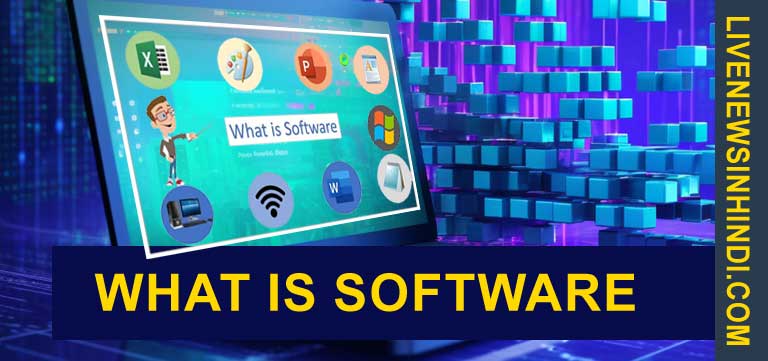Home | software | What is Software: Types, Examples, and Key Concepts
Post By : balindra
What is Software: Types, Examples, and Key Concepts

What is Software: Types, Examples, and Key Concepts
In the digital age, software is the backbone of modern technology, driving everything from simple applications on your smartphone to complex systems managing industrial operations. This comprehensive guide will delve into the world of software, exploring its types, examples, and crucial concepts such as software engineering.
What is Software?
Software is a collection of data or computer instructions that tell the computer how to work. This contrasts with hardware, which is the physical device, and software refers to the programs and applications that run on these devices.
Examples of Software
There are countless examples of software, ranging from operating systems and utility programs to applications for specific tasks. Some common examples include:
- Microsoft Windows (Operating System)
- Adobe Photoshop (Graphic Design Software)
- Google Chrome (Web Browser)
- Microsoft Office (Productivity Suite)
- Slack (Communication Tool)
What is Software Engineering?
Software engineering is a systematic approach to the design, development, operation, and maintenance of software. It involves the application of engineering principles to software development, ensuring the creation of high-quality, reliable, and efficient software systems. Software engineers use programming languages, frameworks, and tools to build software that meets user requirements.
What is Software in Computers?
In computers, software refers to the programs and operating information used by a computer. It enables hardware to perform tasks and solve problems. Without software, computers would be unable to function. Software in computers is typically divided into two categories: system software and application software.
What is a Software Program?
A software program is a set of instructions that a computer follows to perform a specific task. Programs can range from simple ones that perform basic functions like calculators to complex ones that manage entire business operations. Each program is designed to solve a particular problem or fulfill a specific need.
How Many Types of Software Are There?
Software can be broadly classified into three main types:
- System Software
- Application Software
- Utility Software
- System Software
System software manages the hardware and software resources of a computer system. It provides a platform for running application software and includes operating systems, device drivers, and utility programs. Examples of system software are:
- Operating Systems (e.g., Windows, macOS, Linux)
- Device Drivers (e.g., drivers for printers, graphic cards)
- Utilities (e.g., disk management tools, antivirus programs)
Application Software
Application software is designed to help users perform specific tasks. These programs are often called applications or apps and can range from productivity tools to entertainment and educational software. Examples include:
- Word Processors (e.g., Microsoft Word)
- Web Browsers (e.g., Google Chrome)
- Media Players (e.g., VLC Media Player)
- Games (e.g., Fortnite, Minecraft)
Utility Software
Utility software helps manage, maintain, and control computer resources. These programs perform specific tasks related to system management and optimization. Examples include:
- Antivirus Software (e.g., Norton, McAfee)
- Backup Software (e.g., Acronis True Image)
- Disk Cleanup Tools (e.g., CCleaner)
What Are the Three Types of Software?
The three main types of software are system software, application software, and utility software, as detailed above. Each type serves a distinct purpose and is essential for the overall functionality of a computer system.
System Software
System software is essential for running computer hardware and the application programs. It serves as a bridge between the user and the hardware. Without system software, computers would not be able to function efficiently. Examples include:
Operating Systems (Windows, macOS)
- Firmware (BIOS, UEFI)
- Utility Programs (File management tools, antivirus software)
- Application Software
Application software includes all the programs that perform specific tasks for users. These programs are designed to be user-friendly and are focused on helping users achieve their goals, whether it be creating documents, browsing the internet, or playing games. Examples include:
- Office Suites (Microsoft Office, Google Workspace)
- Graphic Design Software (Adobe Photoshop, CorelDRAW)
- Web Browsers (Mozilla Firefox, Safari)
Utility Software
Utility software performs maintenance tasks to ensure the smooth operation of your computer. These programs often run in the background and provide vital services such as virus protection, file management, and system optimization. Examples include:
- Disk Defragmenters (Windows Defragmenter)
- System Monitors (Task Manager)
- Backup Software (EaseUS Todo Backup)
Conclusion
Understanding the different types of software and their purposes is crucial for anyone working with computers or looking to delve into software development. From the essential system software that runs your device to the application and utility software that makes your tasks easier, software is integral to our daily lives. By learning about software engineering, you can appreciate the complexity and ingenuity behind the creation of these indispensable tools.
People also ask
इस आर्टिकल के बारे में, आप अपने विचारो को शेयर कर सकते है जिससे लोगो की काफी हेल्प होगी।

 05/02/2025 03:59:20 AM
05/02/2025 03:59:20 AM 
 Games
Games Software
Software Sing In
Sing In